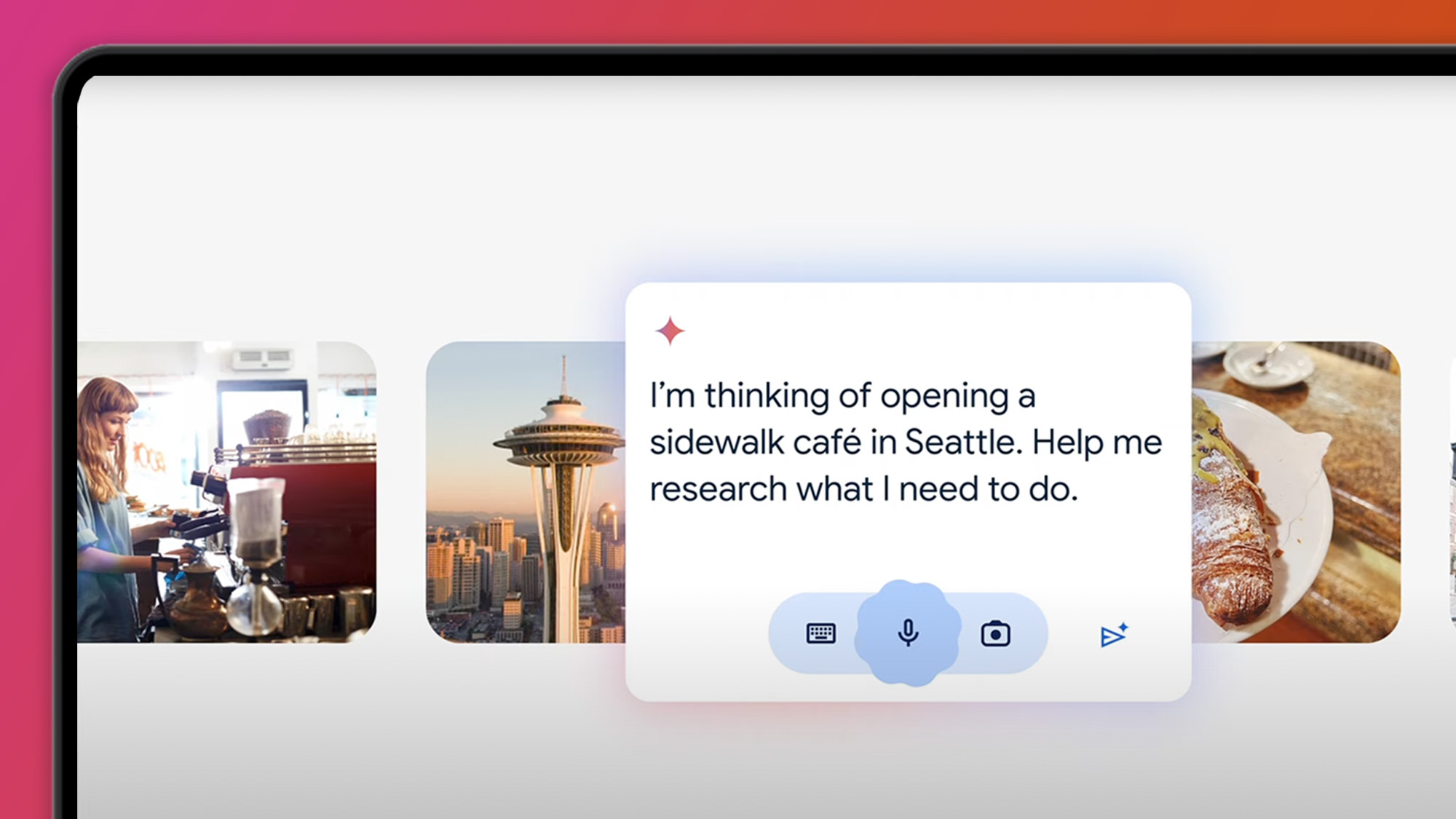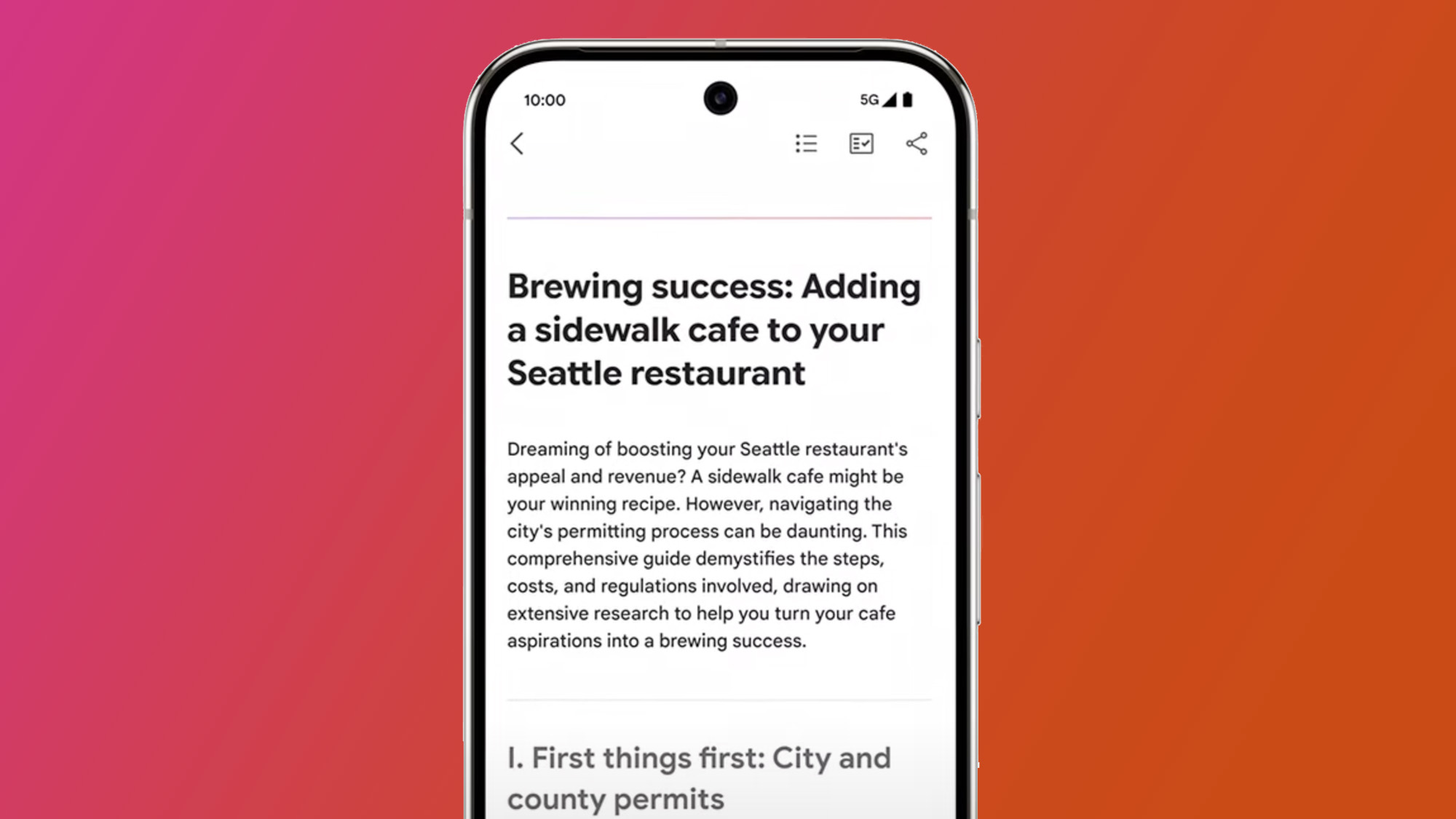We just saw the future of Google – and it’s an AI-powered assistant that does all of the Googling for you
It's out with Googling, and in with Research with Gemini

From AI overviews to Circle to Search, it's clear that the way we use Google is undergoing a massive change – and now Google has teased one of the biggest post-search engine features we've seen so far.
Called 'Research with Gemini', the tool effectively uses AI to search Google for you and neatly serves up the results in a Google Doc. An example question shown at the Made by Google event included: "I'm thinking of opening a sidewalk café in Seattle. Help me research what I need to do". You can see it in action in our video further down this page.
Once Gemini recognizes that you're looking for in-depth research rather than a quick answer, it'll apparently start by creating a multi-step research plan. Once you've approved that, Google says the assistant will "curate information from across the web" in a "continuous reasoning loop".
In other words, it'll be Googling for you – and after a few minutes, it'll throw all of the relevant information into a formatted Google doc, complete with sections and sub-heads. In theory, the vision is certainly a compelling one – and Google is excited about it, calling Research with Gemini "a big step forward in our mission to organize the world's information".
What we don't yet know is exactly when it'll launch – Google has said the tool will land with users of Gemini Advanced (which costs $20 / £19 / AU$30 a month) "in the coming months". We've heard that one before, so we'll pencil it in for sometime this year (at best).
The big asterisks

In many ways, Research with Gemini looks like the future of Google. Rather than flooding us with a sea of blue links, the AI-powered feature promises to rapidly sift through the web, including nooks and crannies like sub-pages and drop-down menus, and do it all way faster than old-school Googling. As Google optimistically claimed at its Made by Google event, "what used to take you hours, now takes minutes".
But this all comes with a couple of big asterisks. Firstly, Google has glossed over the mistakes and 'hallucinations' that it explains Gemini's FAQ section – this technology still regularly makes major errors, so would you really trust it with an important research project? Perhaps it's more of a starting point.
Get daily insight, inspiration and deals in your inbox
Sign up for breaking news, reviews, opinion, top tech deals, and more.
@techradar ♬ original sound - TechRadar
Also, Research with Gemini clearly requires some major computing power, which is why it's initially rolling out only to Gemini Advanced users. Will it be possible to scale the feature to a wider audience? That isn't clear, but Google is getting pushed in that direction by new rivals like OpenAI's SearchGPT.
Either way, the meaning of 'Googling' is rapidly changing – and Research with Gemini gives us a fascinating glimpse of where Google Search is going next.
You might also like...

Mark is TechRadar's Senior news editor. Having worked in tech journalism for a ludicrous 17 years, Mark is now attempting to break the world record for the number of camera bags hoarded by one person. He was previously Cameras Editor at both TechRadar and Trusted Reviews, Acting editor on Stuff.tv, as well as Features editor and Reviews editor on Stuff magazine. As a freelancer, he's contributed to titles including The Sunday Times, FourFourTwo and Arena. And in a former life, he also won The Daily Telegraph's Young Sportswriter of the Year. But that was before he discovered the strange joys of getting up at 4am for a photo shoot in London's Square Mile.